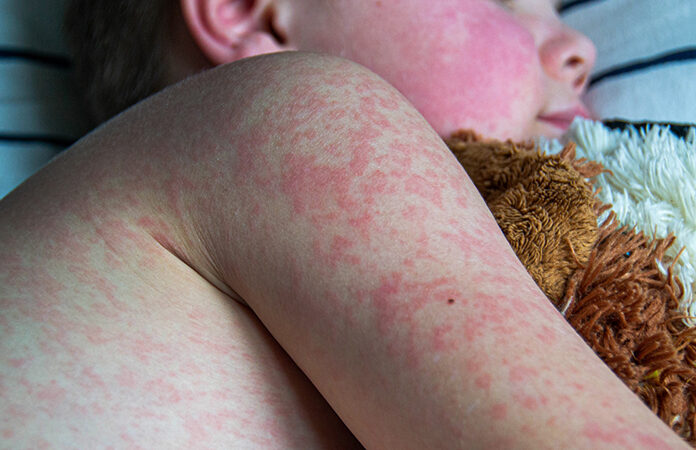The Pan American Health Organization/World Health Organization (PAHO/WHO) issued alerts about the increase in measles cases on February 8 and October 20, 2023. This occurred after years of decline in measles vaccination coverage globally.
The COVID-19 pandemic has resulted in many children worldwide being hindered from receiving their regular vaccinations against various childhood diseases, including the MMR1 and MMR2 vaccines that protect against Measles, Mumps, and Rubella. This is why measles cases around the world increased by 18% in 2022 compared to 2021, these cases increased by 64% in 2023 compared to 2022, and in 2024, measles cases worldwide continue to rise and are gradually getting closer to Aruba as well.
Measles is one of the most contagious diseases that exist and is caused by the measles virus. This virus spreads very easily through the air when an infected person coughs or sneezes. The virus enters the body through inhalation, ingestion, or contact with the eyes, mouth, or nose and affects the respiratory system. It will then spreads throughout the body, causing fever, cough, runny nose, and a rash all over the body. The disease can affect people of all ages and can cause severe complications and even death.
Considering that Aruba receives many tourists from different continents and countries, it cannot be ruled out that Aruba could also experience imported cases of measles at any time. The American continent, from where Aruba receives many tourists, is reporting 206 cases, Europe has 695 confirmed cases as of March 2024, and the Caribbean region has recently reported 2 confirmed cases.
The Department of Public Health is closely monitoring this global development and continues to hold meetings with various partners to work on a plan to mitigate or reduce measles transmission. In the coming days, the DPH will provide further information to the community about developments regarding this virus and the steps Aruba is taking to prepare for this.







